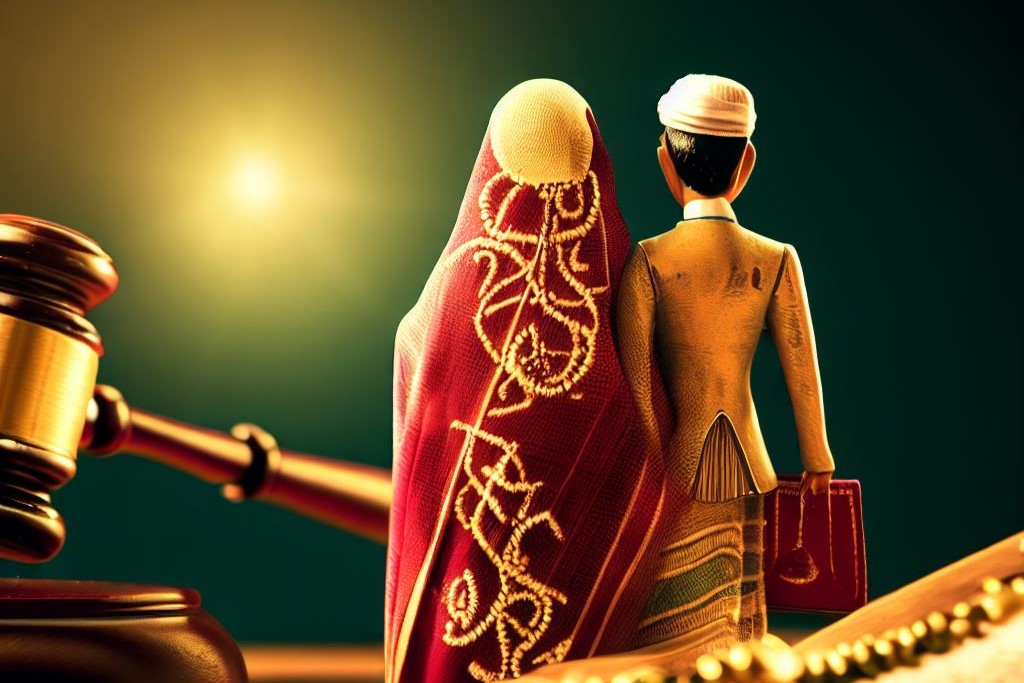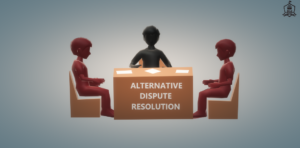People who practice Islam and Hinduism make up the majority of the population of the Indian subcontinent’s religious population, but many other faiths, such as Buddhism and Christianity, are also present here. Marriage is an institution that satisfies legitimate biological needs in a socially and religiously sanctioned way, with one of the main goals being procreation. The rights and obligations of the spouses as well as the status of their children, if any, are outlined by laws, norms, customs, beliefs, and attitudes that control it.
As an independent nation, Bangladesh has a constitution that serves as its supreme law. Under Article 41 of the Constitution of the People’s Republic of Bangladesh, its residents have the freedom to profess, practice, and spread any religion. Article 32 also provides right to life which is similar the provision of the Constitution of India. The Indian Supreme Court included the ‘Right to Marry’ as a Fundamental Right under the Right to Life. The Indian Supreme Court held in the case Shafin Jahan v. Asokan K.M. and others that the right to marry a person of one’s choice is integral to the right to life. The Court emphasized that only legislation that is substantively and procedurally fair, just, and reasonable may restrict this right. A crucial component of the freedom that the Constitution upholds as a significant part of right to life is everyone’s ability to make choices that are fundamental to their pursuit of happiness. The Court goes on to say that the foundation of constitutional liberty is the right to exercise one’s faith and to have beliefs, including whether to believe or not. The choice of mates should be entirely independent of society.
The regulations of Islamic marriage for Muslims have been implemented in Bangladesh through The Muslim Personal Law (Shariat) Application Act, 1937. Generally, Hindus also adhere to their holy texts’ guidelines concerning marriage. On the other hand, The Christian Marriage Act, 1872 governs marriage laws for Christians in Bangladesh. Islam views marriage as a contract. On the contrary, Hinduism regards marriage as a sacrament. Every religion has rules that must be followed in order to get married. The regulations governing marriage vary depending on the faith. For instance, when can one get married, who can and cannot get married, how many witnesses are required, what religious rituals must be followed, etc.
Beyond these rules and religious restrictions, people can have a relationship with a man/woman of any other religion that s/he does not profess. When two persons of different religions want to marry and live in society as husband and wife, then the religious restrictions become a hindrance for such a marriage since the religious rules do not allow such a marriage. It becomes quite difficult to solemnize a marriage when the people who are involved, profess, different religions. The Special Marriage Act 1872 was incorporated in Bangladesh to address this problem. This law grants marriages in such circumstances legal validity. This Act aims to make the marriage lawful for those who don’t profess Islam, Judaism, Christianity, or Hinduism to wed the person who does profess Hinduism, Jainism, Sikhism, or Buddhism. It has been enacted to ensure the legitimacy of marriages between adherents of various religions who wish to wed individuals from other faiths.
Conditions for getting married under this Law are outlined in Section 2 of the Act. This provision further stipulates that there cannot be any degree of consanguinity or affinity between the parties at the time of the marriage and that neither party shall have a living husband or wife. They must fit the specified range of ages. The bride and groom must formally state their intentions to become husband and wife in front of three witnesses and the marriage registrar for the marriage.
The most significant requirement in this situation is that, in accordance with section 10 of the law, both parties must sign a declaration prior to the ceremony saying that they adhere to one of the following religions: Buddhism, Jainism, Sikhism, Hinduism, or they do not believe in Islam, Christianity, or Hinduism. According to established case law, if the spouses with different religious convictions do not renounce their faith, the marriage will be null and void (18 DLR 509). Therefore, religion must be abandoned in the context of such a unique marriage.
Section 17 of the Act states that all marriages entered into pursuant to this Act shall be subject to The Divorce Act, 1869. According to section 23 of The Special Marriage Act of 1877, anyone who practices Hinduism, Jainism, Sikhism, or Buddhism has the same rights with regard to any right of succession to property as someone to whom the Caste Disabilities Removal Act, 1850, applies. Section 24 states that the Succession Act 1925 shall govern their succession. However, the Act makes no provisions regarding the succession of anyone who practices interfaith marriages while professing Islam, Hinduism, Christianity, or Judaism. At the same time. the Act in this situation prevents the issues (offspring of the marriage) from obtaining property rights from their parents within a suitable legal framework since it is uncertain in the Act itself.
In comparison to the situation of legal provisions for special marriage in India and Bangladesh, India has changed its 1872 British law and made a new law The Special Marriage Act, 1954 providing more right-based and gender neutral provisions. Indian Act does not provide any religion for the marriage and hence makes it purely secular in nature. Even the renunciation of religion has also been removed from the new law that is still prevailing in the Special Marriage Act, 1872 in Bangladesh. According to section 21 of the Special Marriage Act, 1954 succession to the property of any person whose marriage is solemnized under this Act and to the property of the issue of such marriage shall be regulated by the provisions of the Indian Succession Act, 1925 irrespective of any religion.
Unfortunately, the Act of Bangladesh fails to provide such a uniform succession right to the persons married under this Act, only the property rights of inter-caste marriage between Hinduism, Jainism, Sikhism, or Buddhism have been protected. In the matter of divorce, the Indian Act provides provisions within the Act itself whereas the Bangladeshi Act refers to The Divorce Act, 1869. Provisions for divorce under the Divorce Act, 1869 have already been recognized as contrary to the right to equality of the Constitution of the People’s Republic of Bangladesh by the Law Commission of Bangladesh since it provides unequal grounds of divorce for husband and wife.
To make the society peaceful and worth living, the Special Marriage Act, 1872 needs to be modified and amended. A few possible ways as to how this may be affected are as follows:
- Firstly, this law should be made pure secular by not mentioning religious beliefs or groups and at the same time, renunciation of religion for inter-faith marriage under this Act should be removed as is done in India.
- Secondly, there should be gender neutral specific provisions in the Act itself providing divorce rights to both husband and wife.
- Thirdly, the succession of the parties of the marriage and their issues should be addressed properly, specific emphasis should be given to the succession right of interfaith marriages since the Act does not provide anything about it.
- Last, but certainly not least, steps should be taken to protect the individual’s choice of selecting a life partner of his/her own wish.
A society which combines people from diverse beliefs and thoughts needs diverse laws to protect their interests. For marriage purposes, The Special Marriage Act, 1872 in Bangladesh provides the legal framework for secular marriage. However, the Act lacks from various perspectives as discussed above. For a better society and better provisions for secular marriage in Bangladesh, it is high time the policymakers reformed the Special Marriage Act, 1872 prevalent in Bangladesh.
Soeb Aktar
Latest posts by Soeb Aktar (see all)
- Special Marriage in Bangladesh: Legal Framework and Shortcomings - September 27, 2023




